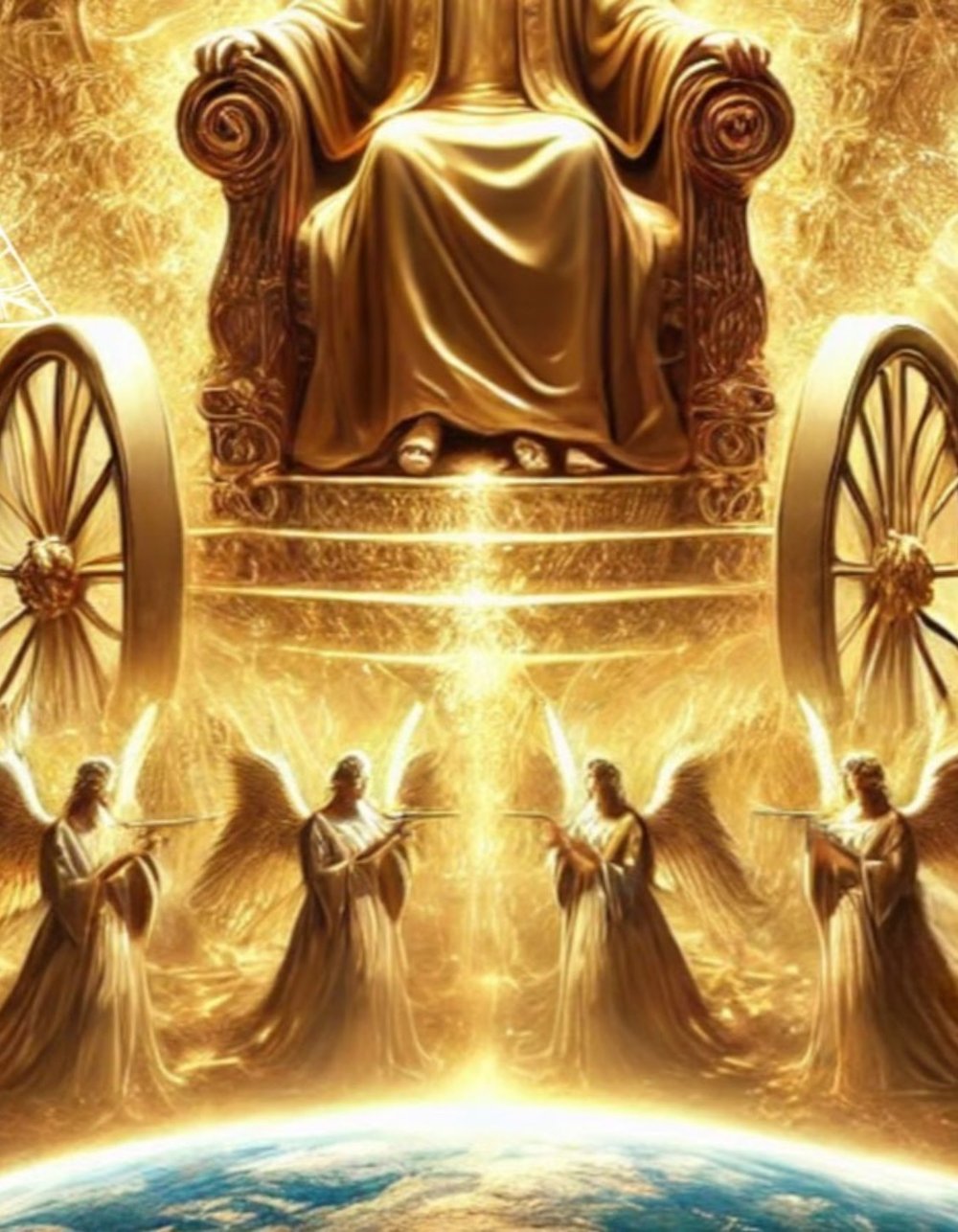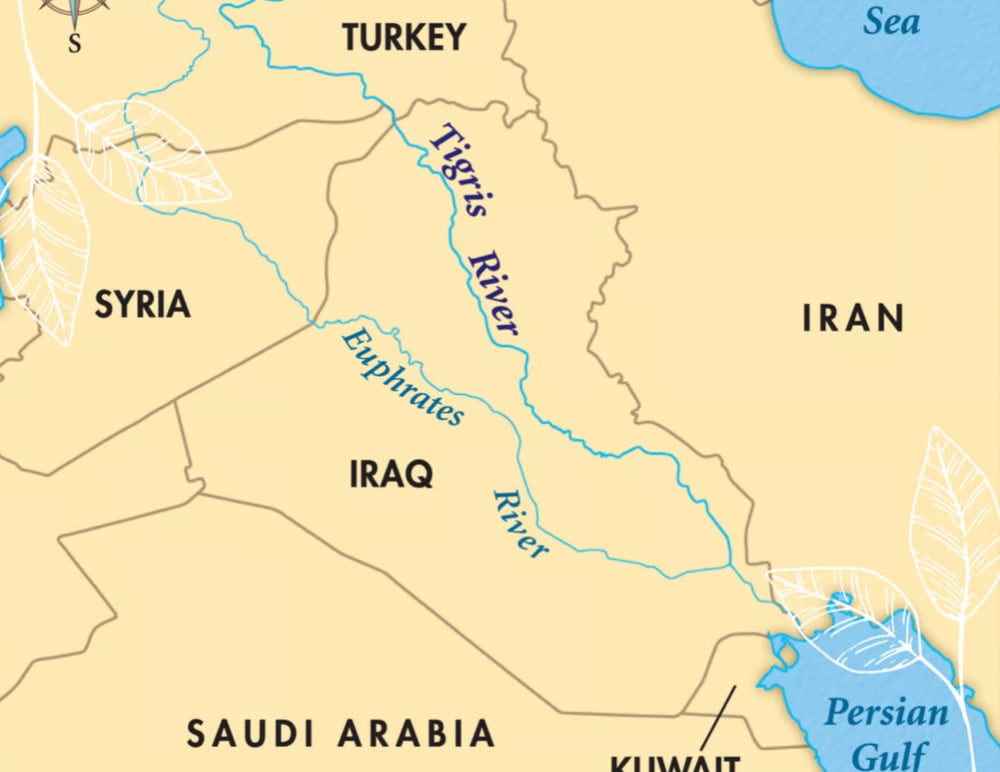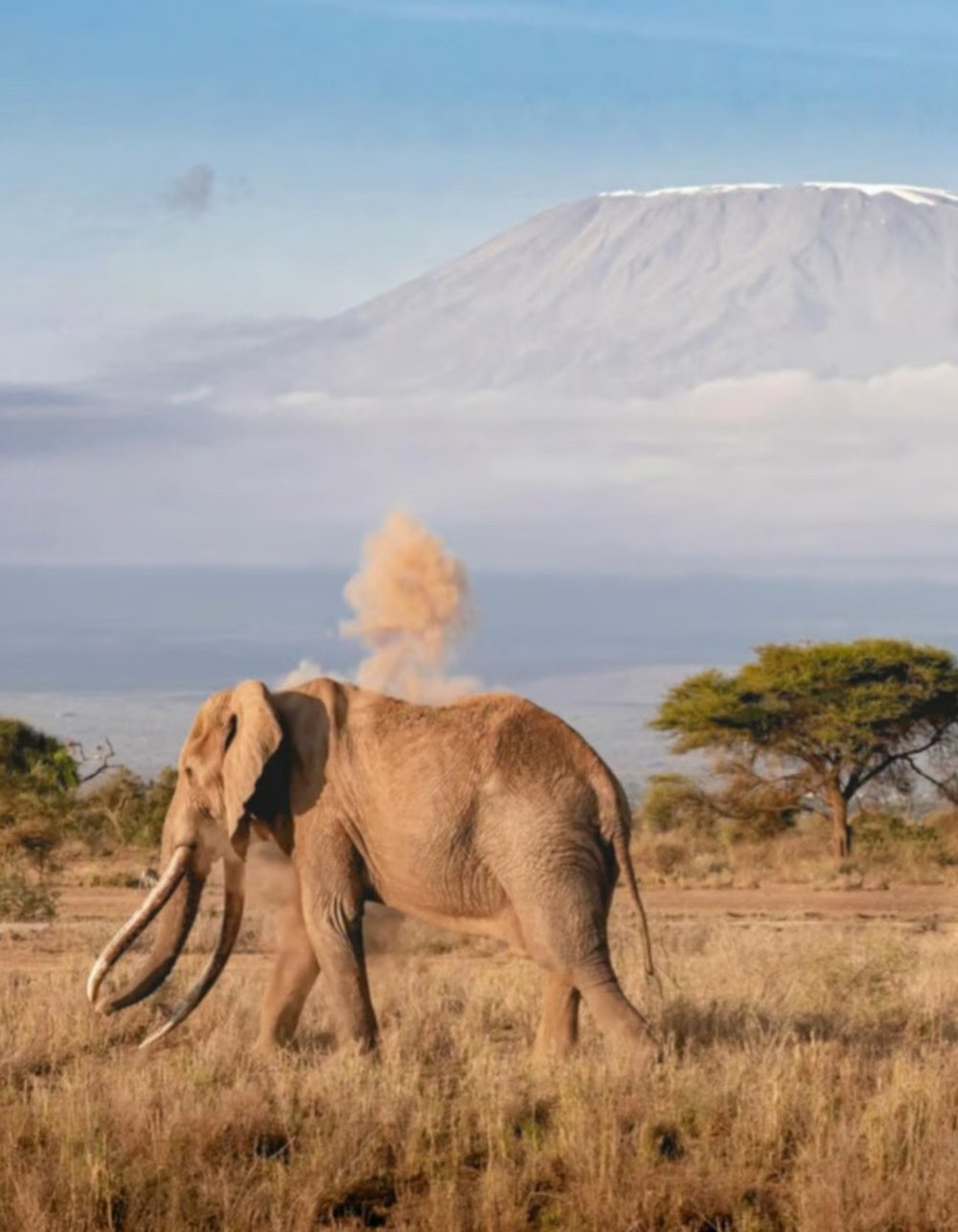
Author
Moses
(Moʹses) [Meaning "Drawn Out," referring to being saved from water] (Watchtower Bible and Tract Society of New York, Inc., n.d.-a).
Moses, the man who probably could have won an award for "Most Likely to Lead a Nation," was a devoted "man of the true God" and a central figure in the Bible. Born in 1593 B.C.E. in Egypt, he was the son of Amram and Jochebed, and the brother of Aaron and Miriam (Exodus 6:16-20). As the leader of Israel, he served as a mediator of the Law covenant, prophet, judge, commander, and historian (Watchtower Bible and Tract Society of New York, Inc., n.d.-a). Talk about a multitasker. Moses, the guy who got things done, was pretty much the ancient world’s project manager. He didn’t just get people out of Egypt—he helped write the book... literally!
God appointed Moses to write the Pentateuch—the first five books of the Bible: Genesis, Exodus, Leviticus, Numbers, and Deuteronomy. These books are foundational, kind of like the original "how to" guide for living, except it didn’t come with a “Warning: May include fire and brimstone.” These books, also called the Torah or the Law, are foundational to Jewish and Christian teachings. Moses is also credited with writing the book of Job, Psalm 90, and possibly Psalm 91. He completed Genesis in 1513 B.C.E., documenting events from creation to the early history of Israel (Watchtower Bible and Tract Society of New York, Inc., n.d.-a). Basically, Moses was the original author of a bestseller that has yet to leave the top of the charts... for over 2,500 years!
While Moses played a significant role in the Bible’s composition, he was one of about 40 individuals inspired by God to contribute to its writing. However, Moses definitely earned the title "First Draft Boss." His life and work remain a cornerstone of both faith and history (Watchtower Bible and Tract Society of New York, Inc., n.d.-a). Imagine if the Bible had a “writing team” reunion. Moses would be the guy who’d be like, “Yeah, I wrote Genesis. Not a big deal... just the beginning of everything.”
Exodus 6:16-20, “These are the names of the sons of Leʹvi, according to their family descents: Gerʹshon, Koʹhath, and Me·rarʹi. The length of Leʹvi’s life was 137 years. The sons of Gerʹshon were Libʹni and Shimʹe·i, according to their families. The sons of Koʹhath were Amʹram, Izʹhar, Hebʹron, and Uzʹzi·el. The length of Koʹhath’s life was 133 years. The sons of Me·rarʹi were Mahʹli and Muʹshi. These were the families of the Levites, according to their family descents. Now Amʹram took Jochʹe·bed, his father’s sister, as his wife. She bore him Aaron and Moses. The length of Amʹram’s life was 137 years.” (Exodus 6:16-20, New World Translation)

Key Characters
Jehovah, God
(Je·hoʹvah) [from the Hebrew Tetragrammaton YHWH, related to the verb ha·wahʹ, “to become,” meaning “He Causes to Become”] (Watch Tower Bible and Tract Society of Pennsylvania, n.d.-c).
Jehovah is the true God, the Creator of all things, worshiped by figures such as Abraham (Genesis 24:27), Moses (Exodus 15:1, 2), and Jesus (John 20:17). His name, revealed as Jehovah (Exodus 3:15), is derived from the Hebrew Tetragrammaton (YHWH, commonly pronounced “Yahweh”) and means “He Causes to Become,” highlighting His role as the Creator (Revelation 4:11) and the Fulfiller of His purpose (Isaiah 42:8; Psalm 83:18; Isaiah 54:5). Jehovah is a God of love (Exodus 34:5-7), justice, and righteousness, who desires all to recognize His name and sovereignty (Isaiah 55:10, 11). Despite human imperfections, He extends mercy (Luke 6:35) and invites all to worship Him wholeheartedly (1 John 4:8) (Watch Tower Bible and Tract Society of Pennsylvania, n.d.-c; Watch Tower Bible and Tract Society of Pennsylvania, n.d.-d). Fun fact: Jehovah is basically the ultimate cosmic CEO, and He’s been running this show for a while.
The name Jehovah appears over 7,000 times in the Bible. However, due to superstition, its exact ancient pronunciation is unknown. It is often translated as "Jehovah" or "Yahweh," (Yahweh being the scholarly Hebrew reconstruction, and Jehovah the best-known English form) with its significance transcending pronunciation. Jehovah revealed Himself not only to Israel but also to all humanity, aiming to sanctify His name (Isaiah 42:8; Joel 2:32; Malachi 3:16) and establish universal peace (Romans 10:13). His personality is reflected in His Son, Jesus, who perfectly exemplified His love and righteousness (Exodus 34:5-7; Luke 6:35; 1 John 4:8). Above all, Jehovah seeks to be known, loved, and worshiped as the Sovereign Lord of all creation (Psalm 47:2) (Watch Tower Bible and Tract Society of Pennsylvania, n.d.-c; Watch Tower Bible and Tract Society of Pennsylvania, n.d.-d).
Genesis 24:27, “and said: “May Jehovah be praised, the God of my master Abraham, for he has not abandoned his loyal love and his faithfulness toward my master. Jehovah has guided me to the house of the brothers of my master.” (Genesis 24:27, New World Translation)
Exodus 15:1-2, “At that time Moses and the Israelites sang this song to Jehovah: Let me sing to Jehovah, for he has become highly exalted. The horse and its rider he has hurled into the sea. My strength and my might is Jah, since he has become my salvation. This is my God, and I will praise him; my father’s God, and I will exalt him.” (Exodus 15:1-2, New World Translation)
John 20:17, “Jesus said to her: “Stop clinging to me, for I have not yet ascended to the Father. But go to my brothers and say to them, ‘I am ascending to my Father and your Father and to my God and your God.’” (John 20:17, New World Translation)
Exodus 3:15, “Then God said once more to Moses: “This is what you are to say to the Israelites, ‘Jehovah the God of your forefathers, the God of Abraham, the God of Isaac, and the God of Jacob, has sent me to you.’ This is my name forever, and this is how I am to be remembered from generation to generation.” (Exodus 3:15, New World Translation)
Revelation 4:11, ”You are worthy, Jehovah our God, to receive the glory and the honor and the power, because you created all things, and because of your will they came into existence and were created.” (Revelation 4:11, New World Translation)
Isaiah 42:8, ”I am Jehovah. That is my name; I give my glory to no one else, Nor my praise to graven images.” (Isaiah 42:8, New World Translation)
Psalm 83:18, “May people know that you, whose name is Jehovah, You alone are the Most High over all the earth.” (Psalm 83:18, New World Translation)
Isaiah 54:5, “For your Grand Maker is as your husband, Jehovah of armies is his name, And the Holy One of Israel is your Repurchaser. He will be called the God of the whole earth.” (Isaiah 54:5, New World Translation)
Exodus 34:5-7, “Then Jehovah came down in the cloud and stationed himself with him there and declared the name of Jehovah. Jehovah was passing before him and declaring: “Jehovah, Jehovah, a God merciful and compassionate, slow to anger and abundant in loyal love and truth, showing loyal love to thousands, pardoning error and transgression and sin, but he will by no means leave the guilty unpunished, bringing punishment for the error of fathers upon sons and upon grandsons, upon the third generation and upon the fourth generation.” (Exodus 34:5-7, New World Translation)
Isaiah 55:10, 11, “For just as the rain and the snow pour down from heaven And do not return there until they saturate the earth, making it produce and sprout, Giving seed to the sower and bread to the eater, So my word that goes out of my mouth will be. It will not return to me without results, But it will certainly accomplish whatever is my delight, And it will have sure success in what I send it to do.” (Isaiah 55:10, 11, New World Translation)
Luke 6:35, “On the contrary, continue to love your enemies and to do good and to lend without hoping for anything back; and your reward will be great, and you will be sons of the Most High, for he is kind toward the unthankful and wicked.” (Luke 6:35, New World Translation)
1 John 4:8, ”Whoever does not love has not come to know God, because God is love. By this the love of God was revealed in our case, that God sent his only-begotten Son into the world so that we might gain life through him.” (1 John 4:8, New World Translation)
Joel 2:32, ”And everyone who calls on the name of Jehovah will be saved; For on Mount Zion and in Jerusalem there will be those who escape, just as Jehovah has said, The survivors whom Jehovah calls.” (Joel 2:32, New World Translation)
Malachi 3:16, ”At that time those who fear Jehovah spoke with one another, each one with his companion, and Jehovah kept paying attention and listening. And a book of remembrance was written before him for those fearing Jehovah and for those meditating on his name." (Malachi 3:16, New World Translation)
Romans 10:13, “For “everyone who calls on the name of Jehovah will be saved.” (Romans 10:13, New World Translation)
Psalm 47:2, ”For Jehovah the Most High is awe-inspiring; He is the great King over all the earth.” (Psalm 47:2, New World Translation)

Adam
(Adʹam) [Earthling Man; Mankind; Humankind; derived from a root meaning “red”] (Watchtower Bible and Tract Society of New York, Inc., n.d.-e).
Adam, the first human and "son of God," was created by Jehovah in 4026 B.C.E. as the pinnacle of His earthly creation. Formed from the dust of the ground and given the breath of life, Adam was made in God’s image, possessing qualities such as love, wisdom, justice, and power. He was tasked with caring for the Garden of Eden, naming animals, and expanding Paradise across the earth with his wife, Eve, whom God created from his rib (Genesis 1:26-28; 2:7, 18-23) (Watchtower Bible and Tract Society of New York, Inc., n.d.-e). Adam was God’s ultimate masterpiece—created from dust, given life, and then put in charge of naming all the animals. Imagine being the first human and getting to name everything! “I’ll call that… an elephant. And you, you’re a giraffe.” That’s some serious power! Talk about a “rags to riches” story—Adam literally went from dust to glory in one divine breath!
Despite his perfect start (like any superhero story, there’s always a twist), Adam disobeyed God by eating the forbidden fruit after being persuaded by Eve (Adam ate the forbidden fruit (spoiler alert: not a good idea), and suddenly the perfect world wasn’t so perfect anymore). This act of rebellion brought sin, suffering, and death to humanity (Now, instead of running the show, Adam had to work hard for everything, including food. The “blessing” of working the land became a bit of a chore). Expelled from Eden, Adam lived 930 years, during which he fathered sons and daughters, including Cain, Abel, and Seth. His disobedience set the stage for the need for redemption, which Jehovah provided through Jesus Christ, the "last Adam" (Romans 5:12-14; 1 Corinthians 15:22, 45) (Watchtower Bible and Tract Society of New York, Inc., n.d.-e).
Adam’s legacy is both a cautionary tale of the consequences of sin and a key part of God’s plan for mankind’s eventual restoration to perfection and life through Christ (Watchtower Bible and Tract Society of New York, Inc., n.d.-e).
Genesis 1:26-28, “Then God said: “Let us make man in our image, according to our likeness, and let them have in subjection the fish of the sea and the flying creatures of the heavens and the domestic animals and all the earth and every creeping animal that is moving on the earth.” And God went on to create the man in his image, in God’s image he created him; male and female he created them. Further, God blessed them, and God said to them: “Be fruitful and become many, fill the earth and subdue it, and have in subjection the fish of the sea and the flying creatures of the heavens and every living creature that is moving on the earth.” (Genesis 1:26-28, New World Translation)
Genesis 2:7, 18-23, “And Jehovah God went on to form the man out of dust from the ground and to blow into his nostrils the breath of life, and the man became a living person." Then Jehovah God said: “It is not good for the man to continue to be alone. I am going to make a helper for him, as a complement of him.” Now Jehovah God had been forming from the ground every wild animal of the field and every flying creature of the heavens, and he began bringing them to the man to see what he would call each one; and whatever the man would call each living creature, that became its name. So the man named all the domestic animals and the flying creatures of the heavens and every wild animal of the field, but for man there was no helper as a complement of him. So Jehovah God caused the man to fall into a deep sleep, and while he was sleeping, he took one of his ribs and then closed up the flesh over its place. And Jehovah God built the rib that he had taken from the man into a woman, and he brought her to the man. Then the man said: “This is at last bone of my bones And flesh of my flesh. This one will be called Woman, Because from man she was taken.” (Genesis 2:7, 18-23, New World Translation)
Romans 5:12-14, “That is why, just as through one man sin entered into the world and death through sin, and so death spread to all men because they had all sinned—. or sin was in the world before the Law, but sin is not charged against anyone when there is no law. Nevertheless, death ruled as king from Adam down to Moses, even over those who had not sinned in the same way that Adam transgressed, who bears a resemblance to the one who was to come.” (Romans 5:12-14, New World Translation)
1 Corinthians 15:22, 45, “For just as in Adam all are dying, so also in the Christ all will be made alive. So it is written: “The first man Adam became a living person.” The last Adam became a life-giving spirit." (1 Corinthians 15:22, 45, New World Translation)

Eve
[Living One; likely derived from the Hebrew verb cha·yahʹ, meaning “to live”] (Watchtower Bible and Tract Society of New York, Inc., n.d.-f).
Eve was the first woman and the final creation of God’s earthly works (Eve was the first woman and the last piece of the puzzle). Created to complement Adam, she was formed from his rib while he slept (Created to be Adam’s perfect helper, she was made from one of his ribs while he was taking a little nap). Adam joyfully accepted her as his wife, naming her ʼish·shahʹ (woman) and recognizing her as "bone of my bones and flesh of my flesh." You could say Eve was the first-ever surprise guest at the dinner table! Together, they were blessed by God to fill the earth and care for creation (Genesis 2:18-23; 1:28) (Watchtower Bible and Tract Society of New York, Inc., n.d.-f). Eve got the most original “rib” dinner ever. Forget salad; she was made out of the finest Adam-cut ribs, seasoned with love!
Deceived by a serpent, Eve ate the forbidden fruit from the tree of the knowledge of good and bad and gave some to Adam, leading to their disobedience to God. But as we all know, things went south when Eve was tricked by the serpent. It’s like being told the “do not touch” cake is the best thing in the world, and—surprise!—the cake isn’t so sweet after all. This resulted in shame, judgment, and expulsion from Eden (As a result, they were both kicked out of Eden). Eve’s punishment included increased pain in childbirth (she definitely got a major upgrade in the pain department — childbirth sounds like it should come with a warning label!) and submission to her husband (Genesis 3:1-16) (Watchtower Bible and Tract Society of New York, Inc., n.d.-f). I guess it was like a two-for-one deal — ‘Pain and Subordination, Now at a Discounted Price!’"
Outside Eden, Eve gave birth to Cain, Abel, and later Seth, as well as other sons and daughters. Her exclamation at Cain’s birth, “I have produced a man with the aid of Jehovah,” shows she recognized God’s role in life-giving (Genesis 4:1). Eve’s life and actions are affirmed by Jesus and Paul as historical and significant in understanding humanity’s beginnings and its relationship with God (Matthew 19:3-6; 1 Timothy 2:13-14) (Watchtower Bible and Tract Society of New York, Inc., n.d.-f).
Genesis 2:18-23, “Then Jehovah God said: “It is not good for the man to continue to be alone. I am going to make a helper for him, as a complement of him.” Now Jehovah God had been forming from the ground every wild animal of the field and every flying creature of the heavens, and he began bringing them to the man to see what he would call each one; and whatever the man would call each living creature, that became its name. So the man named all the domestic animals and the flying creatures of the heavens and every wild animal of the field, but for man there was no helper as a complement of him. So Jehovah God caused the man to fall into a deep sleep, and while he was sleeping, he took one of his ribs and then closed up the flesh over its place. And Jehovah God built the rib that he had taken from the man into a woman, and he brought her to the man. Then the man said: “This is at last bone of my bones And flesh of my flesh. This one will be called Woman, Because from man she was taken.” (Genesis 2:18-23, New World Translation)
Genesis 1:28, “Further, God blessed them, and God said to them: “Be fruitful and become many, fill the earth and subdue it, and have in subjection the fish of the sea and the flying creatures of the heavens and every living creature that is moving on the earth.” (Genesis 1:28, New World Translation)
Genesis 3:1-16, “Now the serpent was the most cautious of all the wild animals of the field that Jehovah God had made. So it said to the woman: “Did God really say that you must not eat from every tree of the garden?” At this the woman said to the serpent: “We may eat of the fruit of the trees of the garden. But God has said about the fruit of the tree that is in the middle of the garden: ‘You must not eat from it, no, you must not touch it; otherwise you will die.’” At this the serpent said to the woman: “You certainly will not die. For God knows that in the very day you eat from it, your eyes will be opened and you will be like God, knowing good and bad.” Consequently, the woman saw that the tree was good for food and that it was something desirable to the eyes, yes, the tree was pleasing to look at. So she began taking of its fruit and eating it. Afterward, she also gave some to her husband when he was with her, and he began eating it. Then the eyes of both of them were opened, and they realized that they were naked. So they sewed fig leaves together and made loin coverings for themselves. Later they heard the voice of Jehovah God as he was walking in the garden about the breezy part of the day, and the man and his wife hid from the face of Jehovah God among the trees of the garden. And Jehovah God kept calling to the man and saying to him: “Where are you?” Finally he said: “I heard your voice in the garden, but I was afraid because I was naked, so I hid myself.” At that he said: “Who told you that you were naked? Have you eaten from the tree from which I commanded you not to eat?” The man said: “The woman whom you gave to be with me, she gave me fruit from the tree, so I ate.” Jehovah God then said to the woman: “What is this you have done?” The woman replied: “The serpent deceived me, so I ate.” Then Jehovah God said to the serpent: “Because you have done this, you are the cursed one out of all the domestic animals and out of all the wild animals of the field. On your belly you will go, and you will eat dust all the days of your life. And I will put enmity between you and the woman and between your offspring and her offspring. He will crush your head, and you will strike him in the heel.” To the woman he said: “I will greatly increase the pain of your pregnancy; in pain you will give birth to children, and your longing will be for your husband, and he will dominate you.” (Genesis 3:1-16, New World Translation)
Genesis 4:1, “Now Adam had sexual relations with his wife Eve, and she became pregnant. When she gave birth to Cain, she said: “I have produced a male child with the help of Jehovah.” (Genesis 4:1, New World Translation)
Matthew 19:3-6, ”And Pharisees came to him intent on testing him, and they asked: “Is it lawful for a man to divorce his wife on every sort of grounds?” In reply he said: “Have you not read that the one who created them from the beginning made them male and female and said: ‘For this reason a man will leave his father and his mother and will stick to his wife, and the two will be one flesh’? So that they are no longer two, but one flesh. Therefore, what God has yoked together, let no man put apart.” (Matthew 19:3-6, New World Translation)
1 Timothy 2:13-14, “For Adam was formed first, then Eve. Also, Adam was not deceived, but the woman was thoroughly deceived and became a transgressor.” (1 Timothy 2:13-14, New World Translation)

Setting
Earth
In the Bible, different terms describe the earth and its aspects based on context:
1. Hebrew Terms:
- ʼEʹrets: Refers to the earth as a planet, land or territory, ground, or humanity collectively. Think of it as the ultimate "real estate" — it's a big deal!
- ʼAdha·mahʹ: Describes soil, tilled ground, property, or the earth’s surface and is linked to Adam, made from dust (Ge 2:7). So, yes, you can say we all started from the dirt!
2. Greek Terms:
- Ge: Denotes arable land, soil, the globe, inhabited earth, or specific territories. It’s the globe, the big ball we all call home (and sometimes forget to clean up after ourselves)!
- Oi·kou·meʹne: Refers to the “inhabited earth” (Mt 24:14). Yep, it's the place where all the hustle and bustle happens – our home sweet home.
The exact meaning of these terms depends on their context in scripture (Watchtower Bible and Tract Society of New York, Inc., n.d.-g).
Earth is the fifth-largest planet in the solar system and the third from the sun. Shaped as an oblate spheroid (basically a slightly squished ball), it has a circumference of approximately 40,000 km (24,900 mi) and a diameter of about 12,750 km (7,920 mi). Oceans cover 71% of its surface, leaving 29% as land (so yes, Earth is basically mostly water, leaving us just enough land to argue about). Earth’s rotation creates day and night (we’re all a bit sleepy because of it, right?), while its tilted axis (23° 27ʹ) causes the seasons. The atmosphere, like Earth's cozy blanket and primarily composed of nitrogen and oxygen, extends about 960 km (600 mi) above the surface (Watchtower Bible and Tract Society of New York, Inc., n.d.-g). It's basically Earth’s VIP area.
The Bible describes the earth’s creation in Genesis 1:1 and acknowledges its purpose as a permanent home for humanity. Its "six creative days" refer to preparing the planet for habitation (— so yes, the earth got a pretty thorough “spring cleaning” before we moved in!). The earth's design reflects Jehovah’s will, emphasizing its role as a stable and enduring home, where mankind can live in perfection and harmony (Psalm 37:11, Isaiah 45:18). Symbolically, the earth is likened to stability and human society, contrasting with the sea's restless nature (Isaiah 57:20) — because, let’s be honest, the sea can be a bit moody sometimes (Watchtower Bible and Tract Society of New York, Inc., n.d.-g).
Scientific descriptions align with the Bible, such as Job 26:7, which describes the earth as "hanging on nothing," consistent with gravity and centrifugal force keeping it in orbit. So next time you're spinning around, remember — it's just gravity doing its job! Despite its figurative use in Scripture, earth remains central to God’s purpose for humanity (Watchtower Bible and Tract Society of New York, Inc., n.d.-g).
Genesis 2:7, “And Jehovah God went on to form the man out of dust from the ground and to blow into his nostrils the breath of life, and the man became a living person.” (Genesis 2:7, New World Translation)
Matthew 24:14, “And this good news of the Kingdom will be preached in all the inhabited earth for a witness to all the nations, and then the end will come.” (Matthew 24:14, New World Translation)
Psalm 37:11, “But the meek will possess the earth, And they will find exquisite delight in the abundance of peace.” (Psalm 37:11, New World Translation)
Isaiah 45:18, “For this is what Jehovah says, The Creator of the heavens, the true God, The One who formed the earth, its Maker who firmly established it, Who did not create it simply for nothing, but formed it to be inhabited: “I am Jehovah, and there is no one else.” (Isaiah 45:18, New World Translation)
Isaiah 57:20, “But the wicked are like the restless sea that cannot calm down, And its waters keep tossing up seaweed and mire.” (Isaiah 57:20, New World Translation)
Job 26:7, “He stretches out the northern sky over empty space, Suspending the earth upon nothing;” (Job 26:7, New World Translation)

Eden
(Eʹden) [Pleasure].
Eden was a region where Jehovah created a garden as the original home for Adam and Eve. Known as the "garden of Eden" or "paradise," it was filled with beautiful trees, abundant food, and diverse animal life (a whole zoo’s worth of animal life—no ticket required) (Genesis 2:8-15). Adam was placed there to care for it and was given authority over its creatures —basically the first job ever, and no commute! (Watchtower Bible and Tract Society of New York, Inc., n.d.-g)
The garden also contained the "tree of the knowledge of good and bad," which was forbidden (a divine “Do Not Touch” label). Eating its fruit represented disobedience to God’s sovereignty, leading to Adam and Eve's expulsion (—and just like that, paradise was lost and the first eviction notice was served) and the loss of access to the "tree of life" (Genesis 2:16-17; 3:22-24). This act of rebellion marked the beginning of sin and imperfection for humanity (Watchtower Bible and Tract Society of New York, Inc., n.d.-g). And yes, all over a piece of fruit… not even a slice of cake!
The exact location of Eden is uncertain. The Bible describes a river flowing from Eden that divided into four, including: the Euphrates, Tigris, Pishon, and Gihon. However, the geography may have been altered by the Flood (Genesis 2:10-14). Eden is remembered as a symbol of humanity’s lost paradise (—proof that even the best neighborhoods aren't immune to bad choices) (Watchtower Bible and Tract Society of New York, Inc., n.d.-g).
Genesis 2:8-15, “Further, Jehovah God planted a garden in Eʹden, toward the east; and there he put the man whom he had formed. Thus Jehovah God made to grow out of the ground every tree that was pleasing to look at and good for food and also the tree of life in the middle of the garden and the tree of the knowledge of good and bad. Now there was a river flowing out of Eʹden to water the garden, and from there it divided into four rivers. The name of the first is Piʹshon; it is the one encircling the entire land of Havʹi·lah, where there is gold. The gold of that land is good. Bdellium gum and onyx stone are also there. The name of the second river is Giʹhon; it is the one encircling the entire land of Cush. The name of the third river is Hidʹde·kel; it is the one going to the east of As·syrʹi·a. And the fourth river is the Eu·phraʹtes. Jehovah God took the man and settled him in the garden of Eʹden to cultivate it and to take care of it.” (Genesis 2:8-15, New World Translation)
Genesis 2:16-17, “Jehovah God also gave this command to the man: “From every tree of the garden you may eat to satisfaction. But as for the tree of the knowledge of good and bad, you must not eat from it, for in the day you eat from it you will certainly die.” (Genesis 2:16-17, New World Translation)
Genesis 3:22-24, “Jehovah God then said: “Here the man has become like one of us in knowing good and bad. Now in order that he may not put his hand out and take fruit also from the tree of life and eat and live forever, —” With that Jehovah God expelled him from the garden of Eʹden to cultivate the ground from which he had been taken. So he drove the man out, and he posted at the east of the garden of Eʹden the cherubs and the flaming blade of a sword that was turning continuously to guard the way to the tree of life.” (Genesis 3:22-24, New World Translation)
Genesis 2:10-14, “Now there was a river flowing out of Eʹden to water the garden, and from there it divided into four rivers. The name of the first is Piʹshon; it is the one encircling the entire land of Havʹi·lah, where there is gold. The gold of that land is good. Bdellium gum and onyx stone are also there. The name of the second river is Giʹhon; it is the one encircling the entire land of Cush. The name of the third river is Hidʹde·kel; it is the one going to the east of As·syrʹi·a. And the fourth river is the Eu·phraʹtes.” (Genesis 2:10-14, New World Translation)

Here is a summary of each river and its possible location today based on historical and geographical analysis:
1. Euphrates River
- Modern Location: Flows through Turkey, Syria, and Iraq.
- Details: One of the most prominent rivers in the Mesopotamian region, vital for agriculture and civilization in ancient times. The Euphrates was basically the VIP lounge for ancient agriculture. If rivers had resumes, this one would list “cradle of civilization” under achievements.
- Ancient Civilizations Sustained by This River:
- Sumerians (c. 4500–1900 BCE) They knew how to party with mud bricks and cuneiform.
- Babylonians (c. 1894–539 BCE) Architects of ziggurats and a legal system even more complicated than modern parking rules.
- Chaldeans (Neo-Babylonians) (c. 626–539 BCE) Famous for Nebuchadnezzar and hanging gardens… if those weren’t just ancient hype.
2. Tigris River
- Modern Location: Flows through Turkey, Syria, and Iraq.
- Details: Runs parallel to the Euphrates (The Tigris is like the Euphrates’ running buddy—literally) and eventually merges with it to form the Shatt al-Arab waterway (They race side-by-side across the map before merging like besties into the Shatt al-Arab waterway), which empties into the Persian Gulf.
- Ancient Civilizations Sustained by This River:
- Akkadians (c. 2334–2154 BCE) Built an empire before coffee even existed.
- Assyrians (c. 2500–605 BCE) Known for their military might, detailed wall carvings, and zero tolerance for rebellion (or bad art).

3. Pishon River
- Modern Location: Its exact location is uncertain (Its exact location is still a mystery—like trying to find your sunglasses when they’re on your head):
- A dried river system in Saudi Arabia (e.g., the Wadi Al-Batin, near the Arabian Peninsula).
- Symbolic or metaphorical rather than an actual river (because sometimes the Bible likes to keep us guessing (and humble).
- Ancient Civilizations Sustained by This River:
- Early Arabian cultures (unknown dates) Exact dates unknown, but they likely knew how to survive the heat before it was cool.
- Dilmun civilization (c. 3000–2000 BCE) Think of them as the ancient beach resort crowd of the Gulf region, with trade game strong enough to impress any modern-day entrepreneur.
4. Gihon River
- Modern Location: Its exact location is uncertain (The Gihon plays hard to get when it comes to geography), but there are a few theories:
- Associated with the Nile River in Egypt and Sudan, as the Bible mentions it flowing through the land of Cush, historically identified with parts of Africa.
- Some alternative theories place it in Iran or other regions near Mesopotamia. Basically, it's the Where’s Waldo of rivers.
- Ancient Civilizations Sustained by This River:
- Ancient Egyptians (c. 3100–30 BCE) Masters of pyramids, eyeliner, and riverfront real estate.
- Nubians/Kushites (c. 1070 BCE–350 CE) Proud neighbors to Egypt, rich in gold, culture, and the kind of royalty that could give Pharaohs a run for their obelisks.

Timeline of Events in the Book of Genesis
Documenting events from creation to the early history of Israel, covering the period from the beginning (a.k.a. "in the beginning" beginning) to 1657 B.C.E. (Watch Tower Bible and Tract Society of Pennsylvania, 2013). Let’s just say Genesis doesn’t pull any punches—it starts with "Let there be light" and ends with a family reunion in Egypt. From paradise lost to sibling rivalry, a worldwide flood, and a 100-year-old dad changing diapers (looking at you, Abraham), this timeline packs more drama than a full season of reality TV—ancient edition.

Main Events
• Creation of the Heavens and the Earth (Verses 1-2) In the beginning… there was nothing. Then God said, “Let’s make everything!”—and just like that, the ultimate DIY project began.
• Six Days of Earth’s Preparation (Verses 3-31) God went full-on project manager mode and rolled out creation like a cosmic to-do list:
- Day 1: Light, separation of day and night (Verses 3-5) God invented light—and the original "daylight savings" began. Boom! Day and night now have a schedule.
- Day 2: Formation of the expanse (Verses 6-8) Also known as "Sky Installation Day." Water above, water below, and a whole lotta atmosphere in between.
- Day 3: Appearance of dry land and growth of vegetation (Verses 9-13) “Let there be land!” God said—and just like that, the first landscaping was done. Plants, flowers, and trees…no weeds, yet.
- Day 4: Creation of heavenly luminaries (Verses 14-19) God hung up the lights—sun for the day, moon for the night, stars just for sparkle. The first celestial decor!
- Day 5: Creation of fish and birds (Verses 20-23) The oceans got some flippers and fins, and the skies were filled with chirps and flaps. No airline delays here!
- Day 6: Creation of land animals and humans (Verses 24-31) Cue the grand finale—lions, tigers, bears, and finally… humans! Adam and Eve arrive, made in God’s image, no assembly required. (Watch Tower Bible and Tract Society of Pennsylvania, 2013)

As you read Genesis Chapter 1, imagine the characters and setting to bring the account to life —yes, even try picturing light being created before the sun (talk about mood lighting!). Identify the main messages or lessons and answer the questions provided below. These topics—along with everything we’ve covered so far—will be explored in the next session of The Chronological Bible Journey Article (Genesis Chapter 1: In the Beginning, Creation Unfolds – Part Two). Come prepared—no fig leaves required.
Reflection Questions
1. What does this tell me about Jehovah God? Spoiler alert: He's not just powerful—He’s the original project manager. Six days, a fully functioning planet, and still took a rest day. Now that’s work-life balance.
2. How does this section of the Scriptures contribute to the Bible’s message? It sets the stage for everything—kind of like the opening scene of a really epic movie… with a cast of stars, oceans, and light before there were even light switches.
3. How can I apply this in my life? Think big, stay organized, and don’t skip rest day. If God paused after creation, you can take a nap after finishing your to-do list too.
4. How can I use these verses to help others? Remind others that everyone has a purpose—even if they feel like they're still in "formless and void" mode. Creation took time. So does growth.
🔍 Read the Bible Online – Free Access to All Translations, Old & New (Yes, Even That One You Forgot Existed & No Camel Needed) 🐫
Helpful Resource: For a free and easy way to look up all the scriptures mentioned in this article, simply click here. You’ll have access to multiple Bible translations, helping you read and compare scriptures from past to present—at no cost. Plus, you can read the Bible in your preferred language—because God speaks fluent you.

📖 Clear, Practical Bible Answers for Life’s Big Questions — Minus the Fire and Smoke 🌱
For more free, Bible-based answers to everyday topics, please visit jw.org—because even the big questions deserve clear, down-to-earth answers (no burning bushes required).

Quiz: How Well Do You Know Genesis Chapter 1?
1. What does the name Moses mean?
a. Drawn Out
b. Deliverer
c. Redeemer
d. Prophet
2. When was Moses born?
a. 1400 B.C.E.
b. 1593 B.C.E.
c. 1600 B.C.E.
d. 1550 B.C.E.
3. Who were Moses’ siblings?
a. Miriam and Aaron
b. Cain and Abel
c. Noah and Ham
d. Joseph and Benjamin
4. What is the Pentateuch?
a. The first five books of the Bible
b. The books of poetry
c. The letters of Paul
d. The Gospels
5. Which book outside the Pentateuch is attributed to Moses?
a. Psalms 90
b. Proverbs
c. Isaiah
d. Ecclesiastes
6. How many authors contributed to the Bible?
a. 10
b. 25
c. 40
d. 60
7. What does the name Jehovah mean?
a. The Almighty
b. He Causes to Become
c. King of Kings
d. The Eternal One
8. How many times does the name Jehovah appear in the Bible?
a. 1,000 times
b. 2,000 times
c. 5,000 times
d. Over 7,000 times
9. On which day were humans created?
a. Day 4
b. Day 5
c. Day 6
d. Day 7
10. What was the consequence of eating from the forbidden tree?
a. Eternal life
b. Loss of perfection
c. Prosperity
d. Dominion over the earth
Answer Key
- a. Drawn Out
- b. 1593 B.C.E.
- a. Miriam and Aaron
- a. The first five books of the Bible
- a. Psalms 90
- c. 40
- b. He Causes to Become
- d. Over 7,000 times
- c. Day 6
- b. Loss of perfection
Nourish & Reflect
1. What part of this article stirred your spirit the most—and why?
(AKA: What had you pausing mid-scroll like, “That was for me”?)
2. Where in your life do you see this spiritual truth applying right now? (Is it calling you in your relationships, your prayer life, your patience… or maybe that area you really didn’t want to talk about?)
3. What would shift in your life if you actually committed to walking this out for a week?
(Just seven days—No need to part the Red Sea. Just part with some excuses.)
4. After applying this truth, what did you notice? Did anything in your heart or habits start to shift?
(Or did life try to test you the second you hit “amen”? Be honest—we’re not judging.)
5. If you faced spiritual resistance or setbacks, what’s one way you can press through it?
(Tap into your inner prayer warrior. What would your spiritually mature, fruit-bearing self say right now?)
6. Do you have questions, insights, or lingering thoughts from this reading? (You know, that one part where your spirit perked up and said, “Let’s go deeper.” Share it—we love those Holy Spirit “aha” moments.)
Your reflections don’t just matter—they might be ministry to someone else. Drop your thoughts in the comments below: What pierced? What prompted prayer? What planted a new seed of faith? Someone else may need the very insight God gave you today.
Share Your Thoughts—We’re Listening!
We want to hear from you! Whether you’re a devoted blog reader or just popped in while hiding from laundry duty, your thoughts help shape what we create next. Tell us what you loved, what made you think, or even what made you chuckle awkwardly at 2 a.m. It only takes a minute—quicker than brewing your morning herbal tea (and with fewer dishes). Click here to share your thoughts—because we’re all ears, hearts, and maybe a little chamomile. Your voice matters to us!
Disclaimer
This article exclusively features scriptures from the New World Translation of the Holy Scriptures, a specific translation of the Bible. The purpose of this article is to provide readers with access to these scriptures for study, reference, and personal enlightenment.
Disclaimer of Affiliation
This article is not officially affiliated with the New World Translation of the Holy Scriptures, the Watch Tower Bible and Tract Society, or any specific religious denomination or organization. It is an independent work created for educational and informational purposes.
Accuracy and Interpretation
Every effort has been made to accurately reproduce the scriptures from the New World Translation of the Holy Scriptures. However, readers are encouraged to consult the official publications and representatives of the relevant religious organization for precise and authoritative interpretations of these scriptures.
Use of the Content
Readers are invited to use the scriptures presented in this newsletter for personal study, research, and spiritual reflection. It is important to approach these scriptures with respect for their religious and cultural significance.
Limitation of Liability
The author and publisher of this newsletter have taken utmost care to ensure the accuracy and authenticity of the scriptures from the New World Translation of the Holy Scriptures. Nevertheless, they do not assume any responsibility for errors, omissions, or inaccuracies in the content. The author and publisher shall not be liable for any direct, indirect, incidental, consequential, or punitive damages arising out of the use or misuse of the information contained in this article.
Copyright and Reproduction
The scriptures from the New World Translation of the Holy Scriptures included in this article are used under fair use principles and are the copyrighted property of the Watch Tower Bible and Tract Society. Readers are advised to respect copyright laws and intellectual property rights when reproducing or distributing any part of this article.
Free of Cost
This spiritual information is provided free of charge following the principle stated in Matthew 10:8, "You received free, give free." Embracing this teaching, the author believes in the importance of sharing spiritual wisdom without financial barriers.
The article's complimentary distribution is a gesture of goodwill, intended to make spiritual knowledge accessible to all, fostering a sense of community and equality. Readers are encouraged to approach this resource with an open heart, appreciating the spirit of generosity that underlines its availability. May the teachings within inspire and uplift, in the true spirit of giving and receiving.
Health, Wellness & Spiritual Content Disclaimer
This article and other content on this site are for educational and informational purposes only and are not intended to diagnose, treat, cure, or prevent any condition. Statements made on this site have not been evaluated by the Food and Drug Administration. Always consult with a qualified healthcare provider before making any wellness decisions. Please read our Disclaimer for full details.
Some materials on this site may include optional scriptural content and biblical insights, presented for educational and reflective purposes, and grounded in evidence-based research and scripture. Use of this content is voluntary and should be engaged with at your own discretion.
By accessing, reading, or using this content, you acknowledge and accept the terms set forth in our Blog Disclaimer, Health & Wellness Disclaimer, Terms & Conditions, and Shop Policies.
Bibliography
Watch Tower Bible and Tract Society of Pennsylvania. (2013). New World Translation of the Holy Scriptures. Watchtower Bible and Tract Society of New York, Inc.
Watch Tower Bible and Tract Society of Pennsylvania. (n.d.-a). Did Moses write the first five books of the Bible? https://www.jw.org/en/bible-teachings/questions/moses-writings/
Watchtower Bible and Tract Society of New York, Inc. (n.d.-b). Moses. https://wol.jw.org/en/wol/d/r1/lp-e/1200003118
Watch Tower Bible and Tract Society of Pennsylvania. (n.d.-c). Jehovah. Watchtower Bible and Tract Society of New York, Inc. https://wol.jw.org/en/wol/d/r1/lp-e/1200002391
Watch Tower Bible and Tract Society of Pennsylvania. (n.d.-d). Who is Jehovah? https://www.jw.org/en/bible-teachings/questions/who-is-jehovah/
Watch Tower Bible and Tract Society of Pennsylvania. (n.d.-e). Adam. Watchtower Bible and Tract Society of New York, Inc. https://wol.jw.org/en/wol/d/r1/lp-e/1200000089
Watch Tower Bible and Tract Society of Pennsylvania. (n.d.-f). Eve. Watchtower Bible and Tract Society of New York, Inc. https://wol.jw.org/en/wol/d/r1/lp-e/1200001450
Watch Tower Bible and Tract Society of Pennsylvania. (n.d.-g). Earth. Watchtower Bible and Tract Society of New York, Inc. https://wol.jw.org/en/wol/d/r1/lp-e/1200001239
Watch Tower Bible and Tract Society of Pennsylvania. (n.d.-h). Eden. Watchtower Bible and Tract Society of New York, Inc. https://wol.jw.org/en/wol/d/r1/lp-e/1200001256




Comments ()